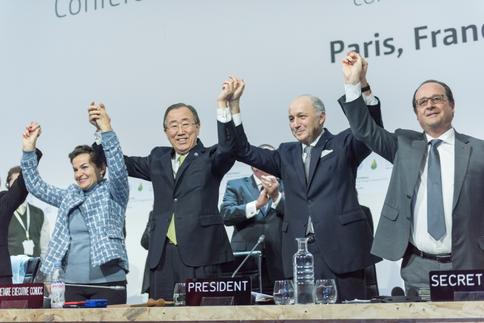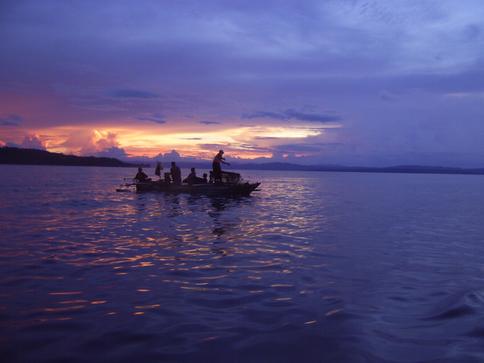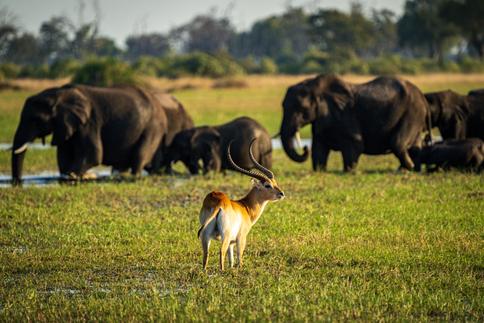
Developing policies and resources to conserve healthy ecosystems for the benefit of all people
Our lives are inextricably linked to the health of our planet. Policy frameworks set the rules and incentives for how individuals, governments and the private sector behave — with important implications for people and nature.
Conservation International’s Center for Policy and Incentives engages with all levels of government to promote solutions that protect people and nature. We build on our more than 30 years of scientific knowledge, practical experience, and technical and financing expertise to form partnerships with governments, businesses and communities. Together, we develop innovative strategies to better protect ecosystems, while guiding policy and investment decisions to implement these strategies around the world.
Our Role
We are a trusted advisor
We act as a trusted advisor to local, national and global decision-makers, providing the data, tools and counsel needed to better protect healthy ecosystems at a large scale.
We recommend policy and investment solutions that are informed by sound science, local understanding and innovative projects that are tested in communities and ecosystems.
We find solutions and achieve consensus on critical issues by working with lawmakers across the political spectrum.
We are champions for nature
Conservation International influences global policies, priorities and public funding decisions that impact nature around the world.
We amplify our results and those of our partners by helping to create policies and secure funding for nature — and the role it plays in creating healthy, prosperous societies.
Our Approach
Local
Indigenous Peoples’ and local communities’ knowledge and traditional practices are critical to implementing climate change solutions and conserving ecosystem services. Conservation International partners with Indigenous Peoples and local communities to ensure their full and effective participation in national and international policy dialogues and planning processes.
We also work with municipal and state governments to prioritize nature in their economic growth policies.
National
Through our technical guidance, training workshops and other community engagement, Conservation International and partners build knowledge and capacity to inform and guide long-term national policies and development discussions.
Global
Conservation International’s policy experts and scientists engage with international organizations to promote action in a wide range of key areas — from ocean conservation to land-use reform. We leverage field experience and scientific expertise to provide policy and technical advice to decision makers in preparation for and during United Nations processes.
Our Priorities

Climate policy
Conservation International works to equip decision-makers with accessible policy-relevant science to restore and protect critical ecosystems as part of global climate action. Natural climate solutions — actions that conserve, restore or improve the use or management of ecosystems, while increasing carbon storage and/or avoiding greenhouse gas emissions — are essential if the world is to limit global temperate rise to 1.5 degrees Celsius, in line with the goals of the U.N. Paris Agreement.
We work with governments at the U.N. Framework Convention on Climate Change to advance the role of nature in implementing the Paris Agreement — from nature’s contribution to national climate targets to the creation of pricing policies and incentives through global carbon markets. Learn more about Conservation International’s positions and engagement in the UN Climate Negotiations »
Conservation International and partners have published a “Guide for Including Nature in Nationally Determined Contributions (NDCs)” to help countries incorporate natural climate solutions as part of their national climate goals, known as Nationally Determined Contributions, under the Paris Agreement. We have also developed “Guidelines on Enhanced Action: A guide on how countries may include blue carbon in their Nationally Determined Contributions” to help countries promote and preserve the benefits of coastal ecosystems with a how-to resource on incorporating blue carbon in their NDCs. Learn more about Conservation International’s Climate Policy work »

Oceans policy
To ensure the long-term health of the marine ecosystems on which humanity depends, we must massively accelerate conservation, restoration and protection of our ocean and coastal ecosystems through effective management and governance.
Conservation International works to advance ocean-related priorities at the local, national and global levels to achieve the goal of conserving at least 30 percent of the ocean by 2030 and sustainably manage marine biodiversity in areas beyond national jurisdiction. We are actively driving ocean-climate policy to integrate priority ocean issues into the U.N. Framework Convention on Climate Change. Conservation International also continues to engage with governments, regional groups and partners to support the implementation of the new international legally binding instrument under the UN Convention for the Law of the Sea for the conservation and sustainable development of marine biological diversity in areas beyond national jurisdiction.
Conservation International's ocean policy supports the goal of conserving 18 million square kilometers of ocean by 2025. Our work helps:
1. Increase the rate at which coastal “blue carbon” ecosystems are conserved and restored through the nationally determined contributions of the U.N. Framework on Climate Change, the Ramsar Convention and other international accords;
2. Promote resilient coastlines with policies that incentivize the use of both natural and manufactured infrastructure — known as green-gray infrastructure — to protect communities from storms and flooding, and improve watersheds;
3. Reduce threats to the ocean (including those posed by the impacts of climate change and the potential impacts of deep-sea mining) by influencing relevant international policies; and
4. Conserve and sustainably manage marine resources while respecting the rights of Indigenous Peoples.

Biodiversity policy
Conservation International works to shape global and national policies, funding and programs that support biodiversity conservation, restoration and sustainable use. We played a key role in shaping the Kunming-Montreal Global Biodiversity Framework (GBF) and now support its implementation through national level policy processes including the update of National Biodiversity Strategies and Action Plans (NBSAPs).

Incentives policy
Subsidy reform holds the potential to transform environmental conservation on a global scale. By realigning economic incentives, we can protect and restore biodiversity, reduce carbon emissions, and promote sustainable livelihoods for millions of people. Conservation International's Accelerating Rapid Transition of Subsidies and Incentives (ARTSI) Initiative will support this transformation by developing the first dedicated financing mechanism for subsidy reform while testing subsidy reform approaches in four countries to demonstrate feasible reform approaches. Learn more about CI's biodiversity and incentives policy work »
Our tactics
Working with governments
We convene and build relationships with — and between — communities, businesses, multilateral and bilateral institutions, and governments to design, fund and implement transformational global conservation initiatives.
Using nature to reduce emissions
Conservation International is a pioneer in finding new ways to protect critical ecosystems like tropical rainforests and mangroves — both for their ability to store climate-heating carbon and for the benefits they provide for people. With REDD+ (Reducing Emissions from Deforestation and forest Degradation), Conservation International is helping design and carry out projects that conserve and protect forests, keeping carbon out of the atmosphere — while benefiting communities that rely on forests for their livelihoods.
Adapting to a changing climate
Around the world, many communities are already struggling to cope with the impacts of climate change. Conservation International and our partners help these communities face the challenges posed by rising sea levels, severe storms and more frequent flooding. Our work helps to identify cost-effective solutions that deliver long-term results.